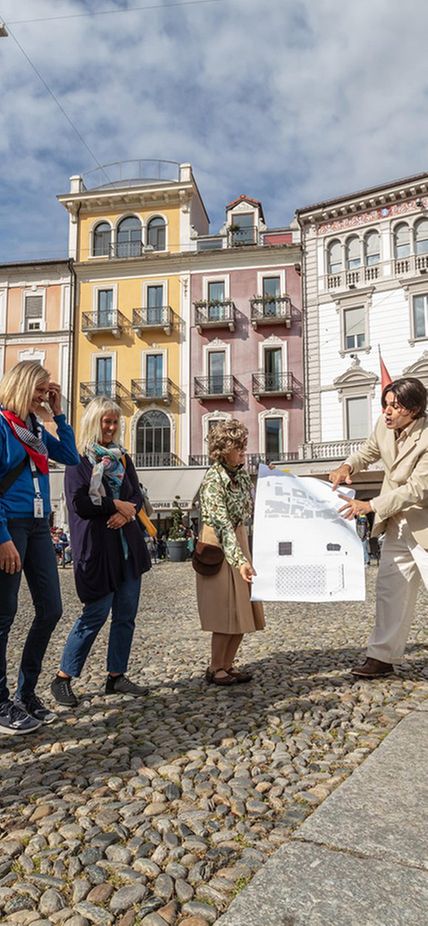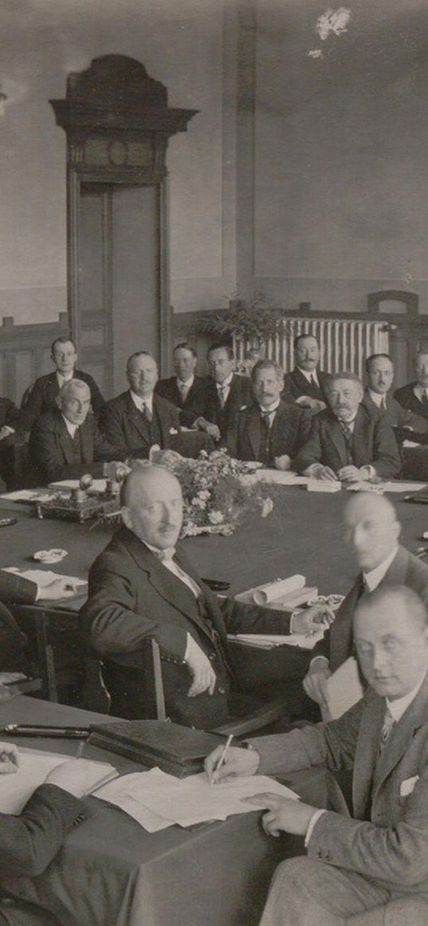After the First World War, relations between Germany and its neighbouring states were severely strained. In an effort to stabilise the political climate in Europe, a series of international agreements, collectively known as the Locarno Pact, were negotiated in Locarno between 5 and 16 October 1925. The talks involved Germany, France, Belgium, Great Britain, Italy, Poland and what was then Czechoslovakia. Locarno was deliberately chosen as a neutral and symbolically unburdened venue, an ideal setting for dialogue between former wartime enemies. Although the actual agreements were signed later, on 1 December in London, the crucial negotiations took place at the Palazzo del Pretorio.
The so-called Locarno Treaties marked the beginning of the “spirit of Locarno,” a period of détente and cooperation. Germany, France, Belgium, Great Britain, and Italy pledged to uphold the existing western borders, particularly between Germany, France, and Belgium. By doing so, Germany formally accepted the loss of Alsace-Lorraine. However, no such guarantee was extended to the eastern borders, which caused concern in Poland and Czechoslovakia. This imbalance led to a sense of greater security in the West, while uncertainty lingered in the East, ultimately sowing the seeds of future tensions.
The 1925 peace conference is regarded as a high point of international reconciliation during the interwar period - even if the resulting peace, regrettably, did not last. To this day, Locarno remains internationally recognised as the “City of Peace” and the centenary commemoration serves as a reminder of its enduring legancy.




